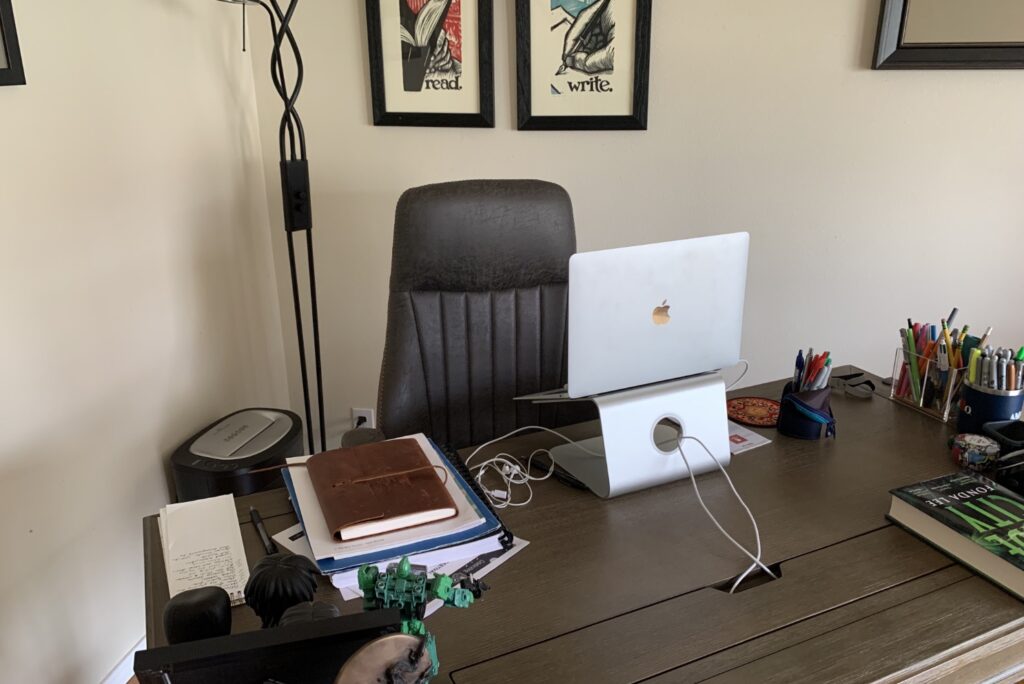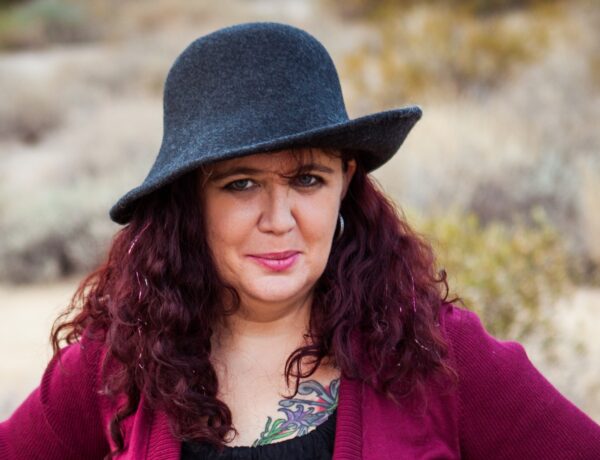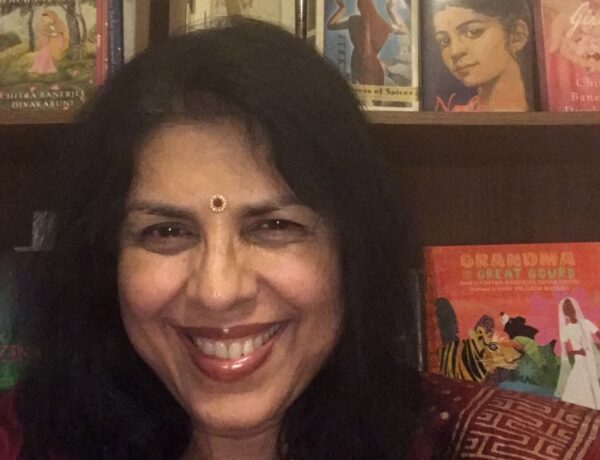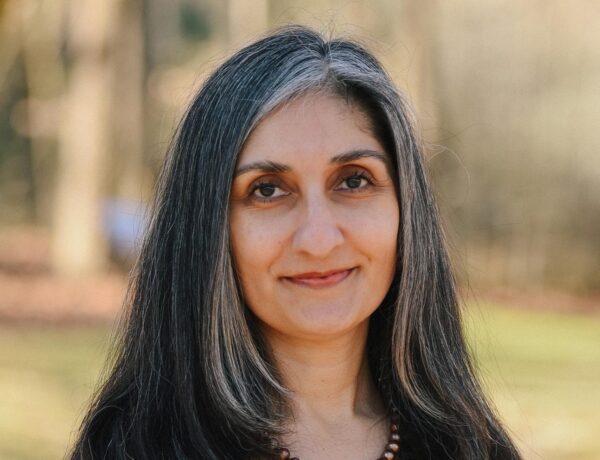Fonda Lee is the author of the epic fantasy Green Bone Saga, beginning with Jade City, continuing in Jade War, and concluding in Jade Legacy. She is also the author of the science fiction novels Zeroboxer, Exo and Cross Fire, and two novellas, the Green Bone Saga prequel The Jade Setter of Janloon, and the upcoming Untethered Sky.
Fonda is a winner of the World Fantasy Award, the Locus Award, and a four-time winner of the Aurora Award (Canada’s national science fiction and fantasy award), as well as a multiple finalist for the Hugo Award, the Nebula Award, and the Oregon Book Award. Her novels have garnered multiple starred reviews and appeared on Best of Year lists from NPR, Barnes & Noble, Syfy Wire, and others. Jade City has been translated in a dozen languages, named to TIME Magazine’s Top 100 Fantasy Books of All Time, and optioned for television development.
She has also written acclaimed short fiction and been an instructor at writing workshops including Viable Paradise and Clarion West. Fonda is a former corporate strategist and black belt martial artist who loves action movies and Eggs Benedict. Born and raised in Canada, she currently resides in the Pacific Northwest.
Looking for inspiration to help you achieve your writing goals? Subscribe to our newsletter for exclusive insights into the routines, habits, and techniques of some of the most celebrated authors in history.
Hi Fonda, welcome to Famous Writing Routines, great to have you here with us today! Your writing spans both science fiction and fantasy, and your upcoming novella Untethered Sky is set to release soon. Can you talk a bit about what inspired this particular story?
Untethered Sky was inspired by the wilderness adventure and animal companion stories that I enjoyed in my childhood, such as Julie of the Wolves, Where the Red Fern Grows, and My Side of the Mountain, combined with a fascination with falconry and my fondness for fantasy monsters.
I started writing this book many years ago, but set it aside while I worked on my epic fantasy trilogy. Jonathan Strahan, my editor at Tordotcom Publishing, caught me at just the right time when he asked if I would consider writing a novella. After completing the Green Bone Saga, I was in the mood to write something very different and much shorter. I went back to the project that would become Untethered Sky and was delighted to discover I very much wanted to finish it.
Untethered Sky is set in a world filled with mythical creatures and a rich history. What was the research and inspiration behind creating this world, and were there any particular myths or legends that influenced your writing?
Since the story features rocs and manticores, which both originate from Persian mythology, it made sense to me to place these monsters in what would be their “natural habitat” so to speak. I researched the ancient Achaemenid Empire of Cyrus the Great, which loosely inspired the fantasy world of Dartha in the novella. I didn’t lean on any particular myths or stories because I wanted the rocs and manticores in my story to feel very much like real animals, stripped of any magical trappings.
The Green Bone Saga has received critical acclaim and has been translated into a dozen languages. Can you tell us a bit about the research and world-building that went into this series?
The Green Bone Saga was a big story with dozens of characters across many locations and spanning decades of time, so a lot went into the trilogy in terms of research and worldbuilding, from organized crime to diamond monopolies, Cold War geopolitics to karambit fighting techniques. I had to think through every aspect of the world that would make any appearance in the narrative: sports, food, religion, entertainment, idioms, superstitions, customs, even the names of the fictional luxury automobiles that the characters drive and the names of the restaurants they eat at. My goal was for the country of Kekon, the city of Janloon, and the people who inhabit them to feel as real as possible to the reader.
Discover the daily writing habits of authors like Stephen King, Neil Gaiman, and Gillian Flynn with Famous Writing Routines Vol. 1 and learn how to take your writing to the next level. Grab your copy today!
You’ve also written acclaimed short fiction and been an instructor at writing workshops like Viable Paradise and Clarion West. What do you enjoy most about teaching and mentoring aspiring writers?
What I enjoy most about teaching is articulating my otherwise formless thoughts about the craft of writing into structured insights that might help other writers unlock something in their own work. The day-to-day task of writing can be very solitary; teaching and mentoring is deeply satisfying in that it connects writers as a creative community.
You were a corporate strategist and a black belt martial artist before you became a full-time author. How did your background in these areas influence your writing?
I’ve written a lot of fights, strategic politicking, and economics into my novels. My martial arts background does help me write combat scenes, not necessarily in the specific details because I’m not an expert in everything I write—for example, I’ve written knife fights and gun fights, and I have no expertise in either—but because I find it easy to see the fight in my imagination before I commit it to paper, and to know how much or how little to describe in order to depict the physical, emotional, and narrative stakes. I try to bring the same sense of high stakes and tension to scenes that take place in a boardroom, because those, too, are character conflicts.
Can you tell us about your writing routine? What does a typical day look like for you?
My day depends on what stage my manuscript is in and whether I’m traveling, teaching, or doing other author activities. I typically work on my current project for about four hours through the morning and early afternoon, and then work on administrative tasks and other things later in the day.
If you could have a conversation with any author throughout history about their writing routine and creative process, who would that person be?
I would like to talk to Ursula K. LeGuin. I heard her speak publicly on a couple occasions before she passed away, and she was unfailingly insightful and inspirational. It would’ve been wonderful to have a personal conversation with her.
I’d love to know about the books you’re reading at the moment. What have been some of your favorite recent reads?
I’m reading three books at once right now (which is very unusual for me) and (slowly) enjoying all of them: Shogun by James Clavell, In the Lives of Puppets by TJ Klune, and Tyranny of Faith by Richard Swan.
What does your current writing workspace look like?
I write in a variety of places: coffee shops, libraries, a rented co-working space, and my home office. My laptop goes just about everywhere with me. When I feel my productivity starting to suffer, I’ll switch up my location in an effort to jumpstart my focus with a change of scenery.

Affiliate disclaimer: Some links on this website are affiliate links. We may earn a small commission if you make a purchase through these links, but only promote products we truly believe in. We disclose affiliate links and give honest reviews.



No Comments